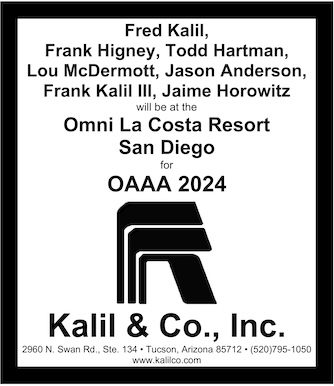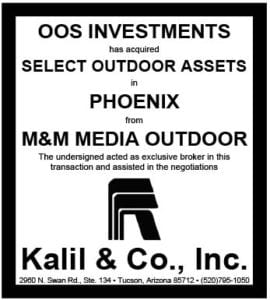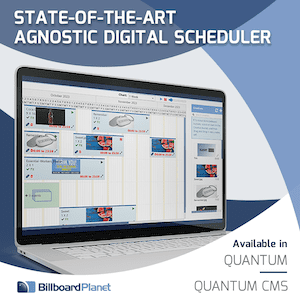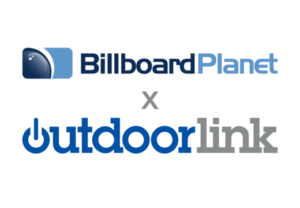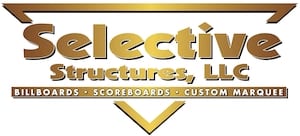 On August 26, 2016, the Texas Appeals Court for the Third District in Austin voided the two sections of the Texas Highway Beautification Act (“HBA”) addressing permits, licenses, enforcement, and regulation on the ground that the Act violated the First Amendment’s protection of Free Speech after the US Supreme Court’s decision in Reed vs Gilbert. You can read the decision here.
On August 26, 2016, the Texas Appeals Court for the Third District in Austin voided the two sections of the Texas Highway Beautification Act (“HBA”) addressing permits, licenses, enforcement, and regulation on the ground that the Act violated the First Amendment’s protection of Free Speech after the US Supreme Court’s decision in Reed vs Gilbert. You can read the decision here.
Insider talked with Richard Rothfelder a partner at Rothfelder Falick about the ramifications of the decision. Rothfelder is a billboard legal expert and has written “Compensability and Valuation of Billboards and Cell Towers under Texas Condemnation Law.”
Richard, briefly what did the Texas court decide and why?
The Court held in an unanimous decision that Subchapters B and C of the Texas HBA, which deal with permits, licenses, enforcement actions, and regulations on height, size, and spacing pertaining to off-premise signs, to be unconstitutional under the First Amendment for violating Free Speech. It did so because the Act contained “unconstitutional content-based restrictions on speech.”
More specifically, the US Supreme Court held in its 2015 decision in Reed vs. Town of Gilbert that the First Amendment is violated when speech, including that communicated on signage, is regulated based on the content of the message displayed on the sign, as opposed to mere “time, manner, and placement” restrictions. In Reed, the City’s regulations on the size, location, and time a sign could be displayed depending on whether it displayed a message about church services.
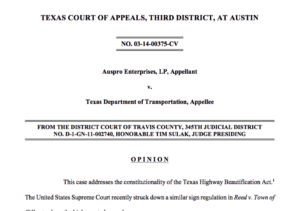 In Auspro, similarly, the Texas HBA exempted from regulation signs displaying messages about elections. In both cases, one must read the content displayed on the sign to determine what, if any, regulations apply to that type of message. Further, while the facts in Auspro were originally limited to a “Vote for Ron Paul” election sign, the Court went on to note that the Texas HBA also contained numerous other regulations and exemptions based on the content communicated on the particular sign, including on-premise vs off-premise signs. For example, a message displayed on a sign advertising goods, services, or businesses located on the same site as the sign would be considered an exempt on-premise sign under the Act. By contrast, if the same structure advertised goods, services, or businesses located at sites other than where the sign was situated, it would be considered an off-premise sign subject to a laundry list of permit, license, and regulatory requirements. Accordingly, the Court went beyond just the exemptions for election signs under the Act, and struck as unconstitutional those provisions on billboards as well.
In Auspro, similarly, the Texas HBA exempted from regulation signs displaying messages about elections. In both cases, one must read the content displayed on the sign to determine what, if any, regulations apply to that type of message. Further, while the facts in Auspro were originally limited to a “Vote for Ron Paul” election sign, the Court went on to note that the Texas HBA also contained numerous other regulations and exemptions based on the content communicated on the particular sign, including on-premise vs off-premise signs. For example, a message displayed on a sign advertising goods, services, or businesses located on the same site as the sign would be considered an exempt on-premise sign under the Act. By contrast, if the same structure advertised goods, services, or businesses located at sites other than where the sign was situated, it would be considered an off-premise sign subject to a laundry list of permit, license, and regulatory requirements. Accordingly, the Court went beyond just the exemptions for election signs under the Act, and struck as unconstitutional those provisions on billboards as well.
What are the practical effects of the decision on Texas Outdoor Advertising companies?
The Texas Department of Transportation, TxDOT, is proceeding with business as usual, despite the Auspro decision. It continues to require, issue, and deny permits and licenses, enforce its height, size, spacing, and other regulations, and initiate new and continue existing administrative prosecutions for permit cancellations and violations. TxDOT justifies this stand by arguing that the Auspro decision is currently not final or enforceable, because it is appealing to the Texas Supreme Court or even higher. While not clear, there is support for such a legal position in the Texas Rules of Civil and Appellate Procedure. In any event, it would be very risky for a billboard operator to proceed as if TxDOT had no authority in reliance on Auspro, such as by building, modifying, or relocating signs without TxDOT’s permission. At the minimum, an operator ought to sue for an injunction and declaration that TxDOT had no right to impede his particular sign operations. Even after acquiring this assurance, there is still the very real possibility that the sign constructed without TxDOT’s permission might not rise to the level of a constitutionally protected grandfathered structure and use, such that if Auspro was reversed on appeal, the sign would then have to be removed. On the other hand, if Auspro is affirmed on appeal, there is a good argument that TxDOT would be liable for refunds of permit and license fees and penalties, and even the advertising revenue lost due to signs removed or conformed pursuant to TxDOT orders, all of which would be considered mandated unconstitutionally.
How do you think the Texas legislature and regulators will act?
TxDOT has announced it will appeal as far as necessary, including to the Supreme Courts of Texas and the United States. Given the importance of Auspro, the existence of a 2003 Texas Supreme Court case upholding the Texas HBA in TxDOT vs Barber, and the precedent in Reed vs Town of Gilbert, there is a good chance the Texas Supreme Court will entertain the “petition for review” and decide the case. The Texas Supreme Court could then affirm or reverse, as usual. Further, in this particular case, it might sever the election law regulations directly affecting Auspro, ruling only those unconstitutional, and stating that the off-premise and other regulations in the Texas HBA need not be adjudicated in order to afford full relief to the litigants before the Court, thereby vacating the unconstitutional findings affecting the outdoor advertising industry. Before any action by the Texas Supreme Court, which would probably not occur until 2018, the Texas Legislature is expected to address the issue in its session commencing in January 2017. Such action is likely to include an attempt to render the Texas HBA constitutional by substituting the current content based regulations with approved time, manner, and placement restrictions on signs. This would take the form of height, size, location, and temporal regulations applicable to all categories of signs, without regard to the content of the messages displayed on the signs. It’s rather hard to imagine all signs, including on-premise, off-premise, real estate, election, and the long list of other exempt and regulated signs currently based on the content of their messages, being subject to the same regulations, so the Legislature will have its hands full this upcoming session. If the Legislature does pass such amendments to the Texas HBA, the Texas Supreme Court may then determine the appeal has become moot and dismiss it accordingly. Such action by the Court, however, would probably be treated only prospectively in considering future regulation by TxDOT as constitutional. By contrast, it probably wouldn’t be retroactive, nor impair any litigation for refunds of permit and license fees previously collected under the unconstitutional Act.
Paid Ad
